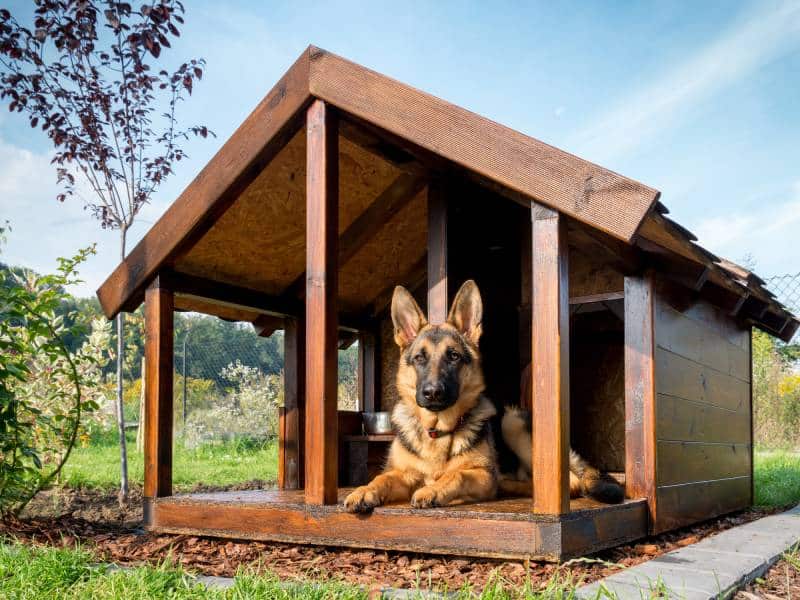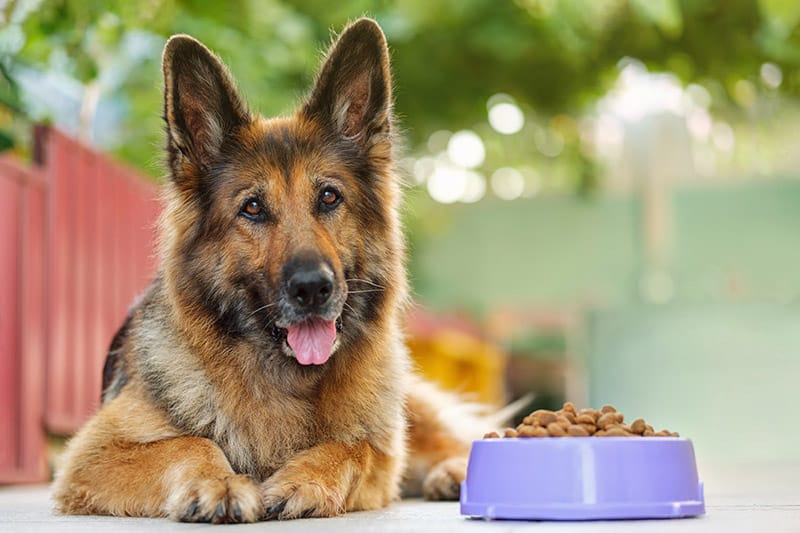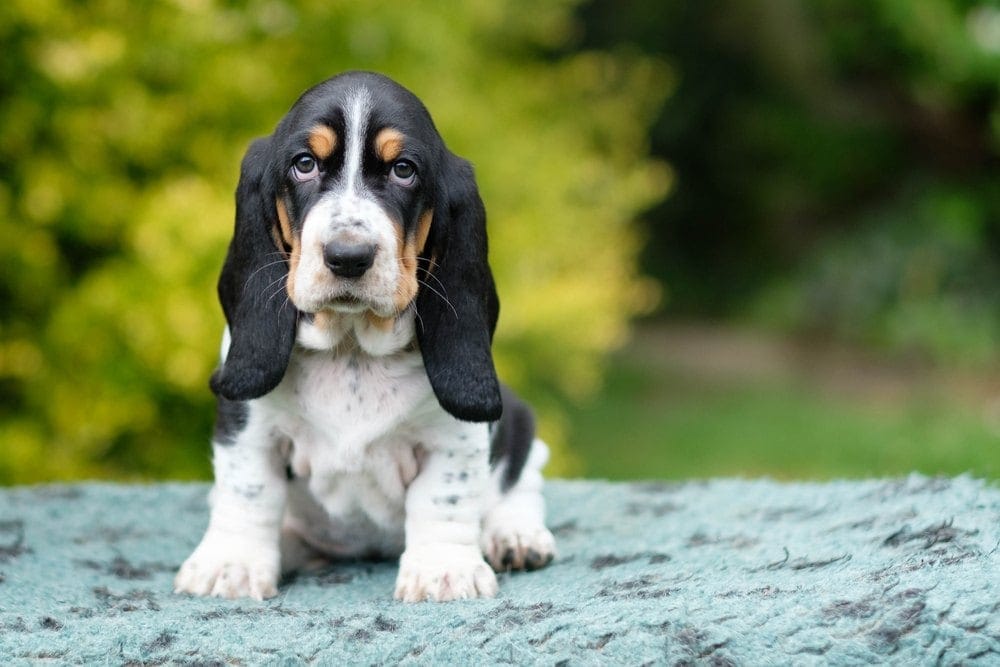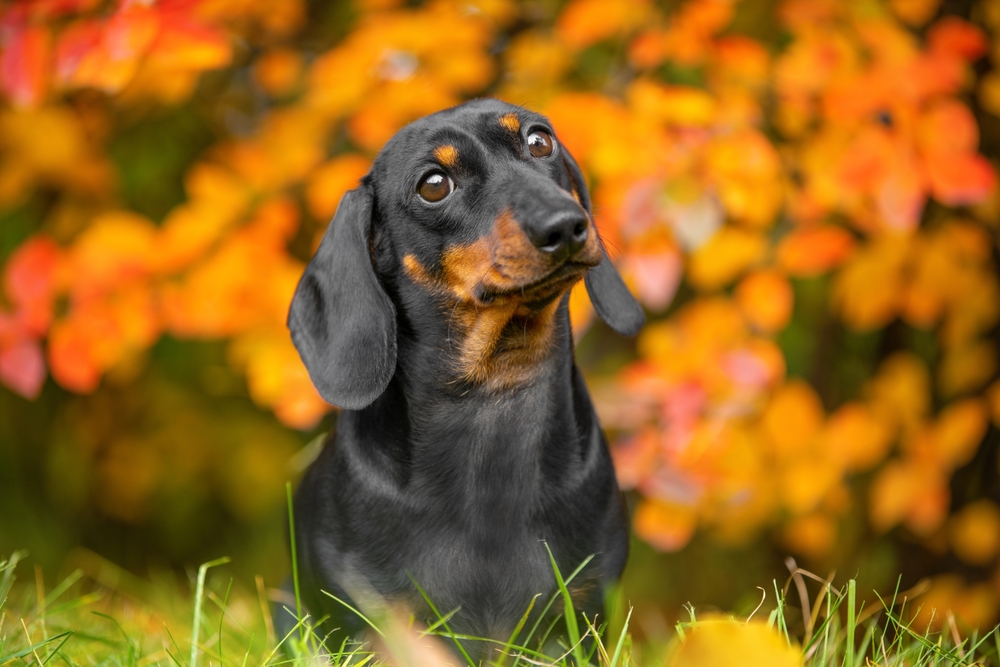Click Below to Skip Ahead
“There are wolves, dogs, and German Shepherd Dogs.” As the early 19th-century adage hints at, an unmatched mix of utility, intelligence, and athleticism puts the well-rounded German Shepherd in a class of their own.
German Shepherd Dogs, or GSDs, consistently rank among the nation’s top breeds, and they are perfect pets for a broad group of hopeful owners. Find out if the German Shepherd is the right dog for you as we discuss their temperament and traits.
Breed Overview
Height:
22–26 inches
Weight:
50–90 pounds
Lifespan:
9–11 years
Colors:
Black, gray, sable, liver, blue, black mixed with cream, red, silver, or tan
Suitable for:
Active families, experienced dog owners, as working dogs
Temperament:
Loyal, loving, intelligent, courageous, confident, trainable, adaptable
Ever since Max von Stephanitz found his first dog, Horand, in 1899, the German Shepherd has had little issue finding their place in a changing world. They began as sheep tenders in northern Germany. Like many working dogs, the form was second to function, and von Stephanitz, the founder of the first GSD breed club, found their work in the field fascinating.
The timing of von Stephanitz’s discovery couldn’t have been better. Sheep raising was declining across Germany when he bought Horand, but with renewed interest, the GSD found favor with elites and the working class alike, earning international acclaim by WWI.
Today, almost any setting has space for this jack-of-all-trades. GSDs are a natural fit for the home, police work, service work, and much more!
German Shepherd Characteristics
German Shepherd Puppies

German Shepherds are among the top five breeds in the U.S., so finding a reputable breeder or adoptable puppies at shelters in your area shouldn’t take much effort. Careful research is crucial, however. The GSD’s popularity has led to persistent health problems due to an increased number of unethical breeders. Available health testing and pedigrees, breed knowledge, and involvement in the GSD community are essential signs of authenticity to check for before choosing a breeder.
Once you find a GSD puppy, work on basic training and socialization. Puppies from this intelligent breed are full of potential and have a large amount of physical and mental energy. Training is a lifelong journey with many ups and downs, but consistency and a positive attitude are always vital.
Careful exposure to novel situations shortly after adoption (i.e., within the first 4 months of life) is crucial in helping your dog develop a calm and outgoing spirit. This is called the socialization window, and it’s when puppies learn the most about the world around them. Take care to introduce your puppy to new experiences, objects, and people in a measured way, ensuring that each experience is positive and not scary.
Temperament & Intelligence of the German Shepherd
The German Shepherd is considered to be one of the most intelligent and biddable dog breeds. Along with their size and athleticism, their trainability has allowed them to excel in numerous working disciplines. They are eager to learn and highly energetic, so they require an owner who can be fun and consistent and show kind leadership. A GSD’s mind and body need to be provided with daily enrichment for them to stay focused and engaged.
When they have proper training, ample activity, and a confident leader, the German Shepherd is fiercely loyal and obedient. They make excellent guard and working dogs too. Although they can be aloof with strangers, a well-mannered GSD will follow their owner’s direction and willingly accept others who don’t pose a threat.

Are These Dogs Good for Families? 👪
The German Shepherd is one of the top choices for active families. GSDs can be sweet and gentle with children, despite their fearsome reputation. Due to their size and strength, though, families with older children are more suitable for them. They need knowledgeable owners and can become highly protective. They remain alert and ready to risk life and limb for their families, and their confidence, power, and dedication make them formidable guardians.
Does This Breed Get Along With Other Pets? 🐶 😽
German Shepherds can generally get along with other dogs, especially if introduced at a young age. They’re typically wary of those outside their family but are confident enough to engage with other dogs. Frequent ongoing positive socialization is essential for reducing the potential for aggression and inappropriate social behaviors.
As GSDs mature, they become more selective and less tolerant, making ongoing training more valuable. Their high prey drive can cause conflict with smaller animals, such as cats, so creating an accommodating environment, supervision, and training will be crucial if you have a multi-pet household.
Since German Shepherds are traditionally some of the most versatile dogs, their breeding line may affect their prey drive and friendliness with other animals.
Things to Know When Owning a German Shepherd
The German Shepherd is an exceptional breed but requires constant effort and a level-headed owner to maintain good social manners and remain compliant. They should be taught to seek direction from their handler and not decide on their own course of action. Various lifestyle accommodations will be needed for their energy and intelligence to keep them happy and healthy. As you might expect, they thrive when they have a job.
There’s plenty to consider before adopting a German Shepherd, but proper diet, exercise, and training will help keep them healthy, alert, and attentive, providing comfort, security, and companionship for the entire family.
Food & Diet Requirements 🦴
The German Shepherd is large and muscular, requiring a high-quality diet to fuel them throughout the day. Foods should be protein-rich and have a generous blend of omega fatty acids and balanced vitamins for a healthy coat, skin, and bones. Mature dogs may also benefit from joint support, such as glucosamine and chondroitin in their food.

Exercise 🐕
Diet and exercise work hand in hand, particularly with an energetic and large dog like the GSD. They are highly active, requiring at least 1–1.5 hours of daily exercise to satisfy their energy levels and to stave off obesity.
Without proper exercise, the German Shepherd can easily become overweight, exacerbating common issues like joint problems. Give your dog daily blends of walks, off-leash exercising, high-activity play, and training.
Training 🎾
Just as a GSD can exercise forever, there’s virtually no limit to the training you can (and should) provide. These dogs are exceptionally bright and quick to learn even the most complex tasks. With consistent training, you can fully unlock their seemingly boundless potential.
At the same time, training is necessary to keep your GSD well-mannered, obedient, and agreeable. When you don’t flex those mental muscles, the dog will be more likely to give in to their prey drive, vigilance, and other natural urges.
Enrolling in obedience classes and honing their recall and impulse control will be critical while they’re puppies. In adulthood, they can transition to agility, scent work, and other competition-based activities, which provide novel ways to continue training and bonding with your dog.
Grooming ✂️
The German Shepherd has a thick double coat, with a topcoat consisting of short, medium, or long hair. Brushing every other day will keep shedding to a minimum. A de-shedding tool, undercoat rake, or slicker brush will effortlessly remove loose hair and fur, with the best tool depending on your dog’s coat length.
Your grooming efforts will ramp up considerably during the spring and fall when your GSD blows their coat. Trim the nails monthly or as needed, and bathe your German Shepherd every few months to keep their coat and skin healthy.
You should brush their teeth every day or two and check the ears weekly for dirt and buildup to clean out.

Health and Conditions 🏥
German Shepherds are predisposed to several disorders, with many prevalent issues traced to irresponsible breeding, thus highlighting the need for comprehensive research when finding a breeder.
Health problems common to the breed include degenerative myelopathy (a neurologic disorder leading to hind leg mobility issues) and elbow and hip dysplasia. German Shepherds also commonly suffer from various gastrointestinal issues, including diarrhea and eye disorders.
- Obesity
- Allergies
- Hip dysplasia
- Elbow dysplasia
- Osteoarthritis
- Degenerative myelopathy
- Heart disease
- Pancreatic acinar atrophy and exocrine pancreatic insufficiency
- Megaesophagus
- Renal cystadenocarcinoma and nodular dermatofibrosis
Male vs Female
Male and female German Shepherds share many real and perceived differences common to other breeds. Males are usually taller and heavier than females, bearing greater musculature and denser bones.
Their personalities are relatively similar, particularly after spaying and neutering. That said, many owners find that males are more outgoing, affectionate, and forceful, while females are moodier yet more relaxed.
3 Little-Known Facts About the German Shepherd
1. The German Shepherd Is One of Hollywood’s Most Popular Breeds
Following WWI, the popularity of German Shepherds exploded as heroes like Rin Tin Tin took over Hollywood. As it turned out, the GSD’s superior intellect and physical prowess made them the perfect breed to delight directors and impress audiences.
Unlike canine side characters that occasionally steal the show, the German Shepherd Dog is frequently the star. While Rin Tin Tin may be the most famous GSD, the breed has been front and center in numerous productions over the decades, including the “K-9” movies with Jim Belushi and the Austrian TV show “Kommissar Rex.”
2. GSDs Aren’t Welcome Everywhere
Despite being America’s fourth most popular breed, the GSD is also among the least accepted. Apartment-hunting GSD owners may have a more challenging time than expected finding landlords who will allow their dogs, which join Pit Bulls and Bulldogs, among others, on some restricted breed lists. Many owners of restricted breeds often pay much more monthly for housing than other dog owners.
Beyond the liability issues of a breed perceived as aggressive, restrictions are also due to the generally poor fit that GSDs make in an apartment setting. They can be loud barkers because of their protective nature, and their activity levels are challenging to satisfy in the limited space.
3. German Shepherds Hold Multiple Records
Not every breed appears in the Guinness Book of World Records, and among the ones that do, most don’t hold as many records as the German Shepherd. Besides being known as one of the most intelligent breeds, the GSD enjoys several other claims to fame, including:
- A GSD/Lab mix holds a record for having the longest tongue
- A GSD named Zinzan set the record for the fastest time weaving through 60 poles
- A trail hunter named Arrow became the first skydiving anti-poaching dog in history

Final Thoughts
The German Shepherd is a classic breed that can enrich the lives of loving owners and their families, but their compliance with requests doesn’t always come easy. You must earn a GSD’s respect and understanding, like anything worth having. While they may instantly be loyal, you will have to work for cooperation daily. Fortunately, with dedication, consistency, and positivity, you can experience the endearing character and remarkable talent that has made the GSD a top companion for over a century.
Featured Image Credit: Bildagentur Zoonar GmbH, Shutterstock














